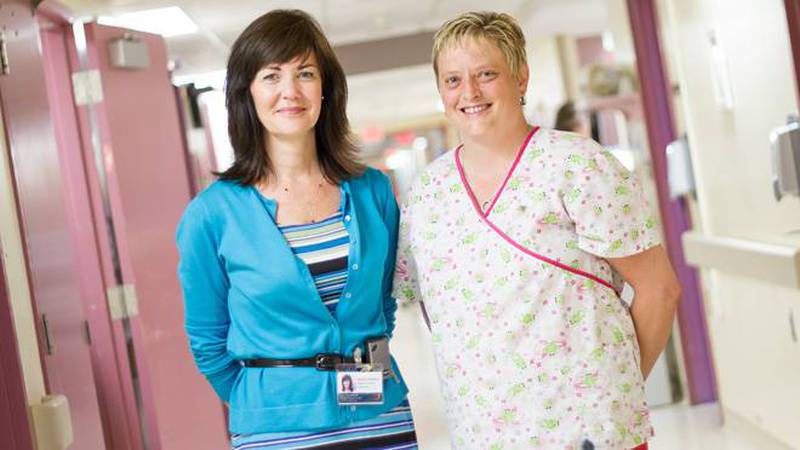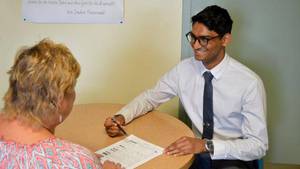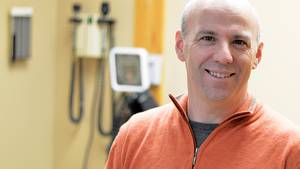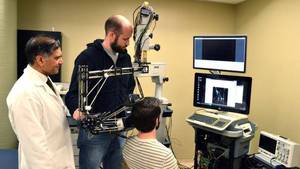 |
| Richard Crouse and his wife Rosalie Courage are leaving a gift for the QEII Foundation in their wills after the excellent care Richard's father received after a cancer diagnosis in the 1990s. (Contributed) |
Richard Crouse’s father died in April. Amid the grief, there was gratitude. His father, Harold James Crouse, first got cancer in the 1990s, but the treatment he received at the QEII Health Sciences Centre gave him more time to live and love.
“There was an extra 17 years of life we got,” Richard says quietly. “He was looked after quickly, and very well.”
The care his father received is what inspired Richard and his wife, Rosalie Courage, to draw up their wills so that they will leave a gift for the QEII Foundation.
“A diagnosis of cancer can be overwhelming. I just want to make sure all the best kind of care is available... and that takes money,” Richard says. “It’s in my family. My father and my aunt have had it. I want to contribute to that kind of care and research.”
Rosalie first came across the QEII Foundation professionally. When she started her consulting company, RBR, in 1989, the Victoria General Hospital Foundation was her first client. Since then, the Victoria General has amalgamated with Camp Hill Veterans’ Memorial and the Rehab Centre to form the QEII – and Rosalie’s relationship continues today.
“We work with charities all the time and we realize how important it is to leave something. They do require funding more now than ever before, especially in health care,” she says.
Her work with the QEII Foundation exposed her first-hand to the excellent medical and compassionate care provided by the health centre.
When the couple drew up their wills, they decided part of their estate should be left to charity. Many people donate to the QEII Foundation for different reasons and occasions during their lifetime, and some choose to leave a gift for the QEII in their will to care for those after they are gone.
Leaving a gift in your will is considered a charitable donation and your estate receives a tax credit that your executor may use to offset income taxes. It can be designated to any area within the QEII.
It’s not just about wealthy people making large donations. The majority of planned giving comes from ordinary people making gifts that work for them.
Rosalie says it’s important to get your wishes written into your will when you draw it up with a lawyer.
“You have to put something on paper,” Rosalie says. “When you’re in the office and the will is being drawn up, you have to make that final decision. I was really wrestling with it because I’ve spent my career working for the not-for-profit sector and the charitable sector. How do you choose? All of them were wonderful and worthy.”
Richard, an industrial engineer, agrees it was a tough decision.
“Maybe the deciding factor was not the professional relationships, but the ones that touched personally,” he says.
“I felt good because I was giving back. My dad was taken care of very well. I want to make sure the kind of benefit I have received is passed on to other people. I felt good about that.”
“I know for a fact that when people hear about others making a gift, it sometimes gets them thinking they could do something to help as well,” Rosalie says.
To learn more about leaving a gift in your will, contact Charles O’Neil, gift planning advisor with the QEII Foundation, at charles.o'neil@qe2foundation.ca or 902 473 4511.








